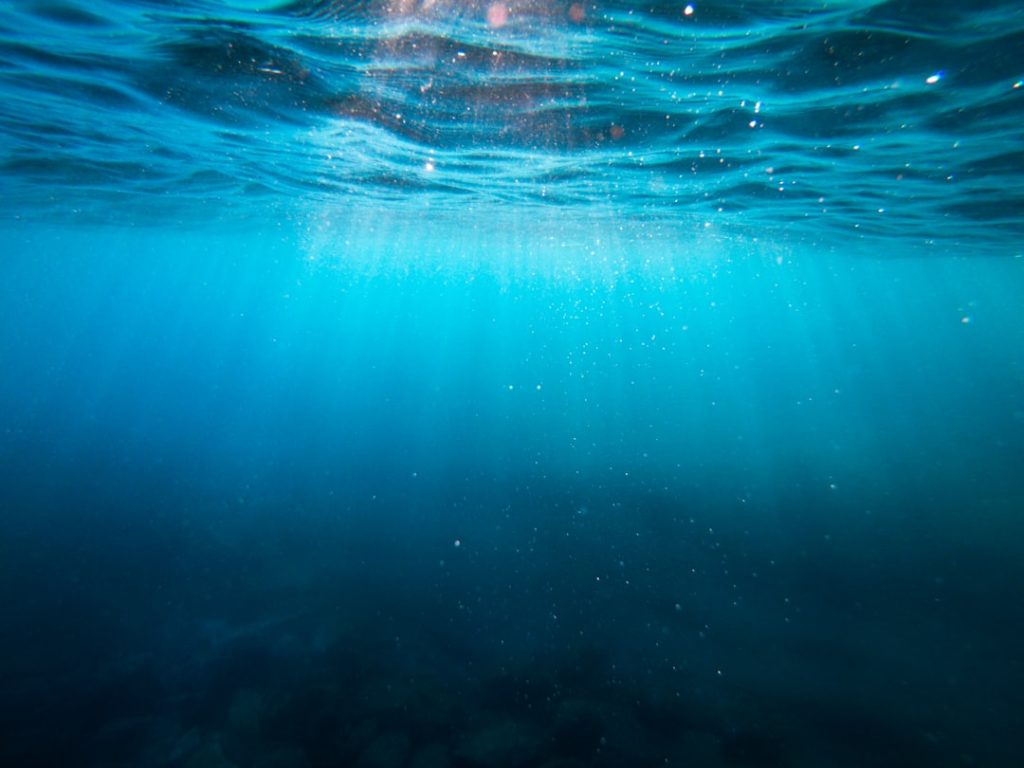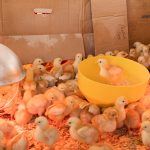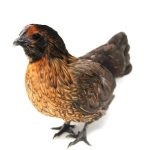Chicken water freezing is a common issue during winter months, primarily due to low temperatures. When the ambient temperature falls below 0°C (32°F), water left outdoors will naturally freeze. Wind chill can exacerbate this effect, causing water to freeze more rapidly.
The lack of insulation in water containers is another contributing factor to freezing. Inadequately insulated containers allow heat to escape more quickly, making the water more susceptible to freezing. The size and shape of the container also play a role in how quickly water freezes.
Containers with larger surface areas expose more water to cold air, leading to faster freezing. Similarly, shallow containers are more prone to freezing than deeper ones due to the increased surface area in contact with cold air. Understanding these factors is crucial for implementing effective strategies to prevent chicken water from freezing during cold weather, ensuring that poultry have consistent access to fresh water throughout the winter months.
Table of Contents
- 1 Insulating the Water Container: Tips for Keeping Water from Freezing
- 2 Using Solar Power: Harnessing the Sun to Keep Chicken Water from Freezing
- 3 Utilizing Thermal Mass: How to Use Materials to Retain Heat and Prevent Freezing
- 4 Adding Heat Sources: Creative Ways to Keep Chicken Water Warm Without Electricity
- 5 Implementing Passive Heating: Strategies for Using Natural Processes to Prevent Freezing
- 6 Monitoring and Maintenance: Tips for Keeping Chicken Water from Freezing in Cold Weather
- 7 FAQs
- 7.1 How can I keep my chickens’ water from freezing without electricity?
- 7.2 What is an insulated waterer and how does it work?
- 7.3 How does adding a floating ball to the water prevent freezing?
- 7.4 What are heated waterers and how do they work?
- 7.5 How do solar-powered water heaters work for keeping chickens’ water from freezing?
- 7.6 Are there any other methods for keeping chickens’ water from freezing without electricity?
Key Takeaways
- Understanding the Problem: Why Does Chicken Water Freeze?
- Cold temperatures cause water to freeze, making it difficult for chickens to access water.
- Insulating the Water Container: Tips for Keeping Water from Freezing
- Use insulated water containers to prevent freezing.
- Wrap containers with foam or bubble wrap for added insulation.
- Using Solar Power: Harnessing the Sun to Keep Chicken Water from Freezing
- Install solar-powered water heaters to keep water from freezing.
- Position water containers in sunny areas to take advantage of natural heat.
- Utilizing Thermal Mass: How to Use Materials to Retain Heat and Prevent Freezing
- Use heavy materials like stone or concrete to retain heat and prevent freezing.
- Place water containers on top of thermal mass to keep water from freezing.
- Adding Heat Sources: Creative Ways to Keep Chicken Water Warm Without Electricity
- Use heated waterers or heated pet bowls to keep water warm without electricity.
- Place warm water bottles or heated rocks in the water to prevent freezing.
- Implementing Passive Heating: Strategies for Using Natural Processes to Prevent Freezing
- Use passive solar heating by positioning water containers in areas that receive direct sunlight.
- Utilize composting heat by placing water containers near compost piles to keep water warm.
- Monitoring and Maintenance: Tips for Keeping Chicken Water from Freezing in Cold Weather
- Check water containers regularly for ice and remove any frozen water.
- Use water additives like salt or sugar to lower the freezing point of water.
Insulating the Water Container: Tips for Keeping Water from Freezing
Using Foam Insulation
One effective way to insulate the water container is by using foam insulation. Foam insulation can be wrapped around the outside of the water container to help retain heat and prevent freezing.
Natural Insulation Materials
Another option is to use insulating materials such as straw or hay to surround the water container. These natural materials provide excellent insulation and can help keep the water from freezing. In addition to external insulation, it’s also important to insulate the top of the water container.
Insulating the Top and Using Heated Waterers
This can be done by placing a layer of insulation on top of the water, such as a floating insulation disk or a piece of foam board. By insulating the top of the water, you can prevent heat from escaping and reduce the likelihood of freezing. Furthermore, using a heated water base or a heated waterer can also help prevent freezing. These devices are designed to keep the water at a constant temperature, preventing it from freezing even in cold weather.
Using Solar Power: Harnessing the Sun to Keep Chicken Water from Freezing
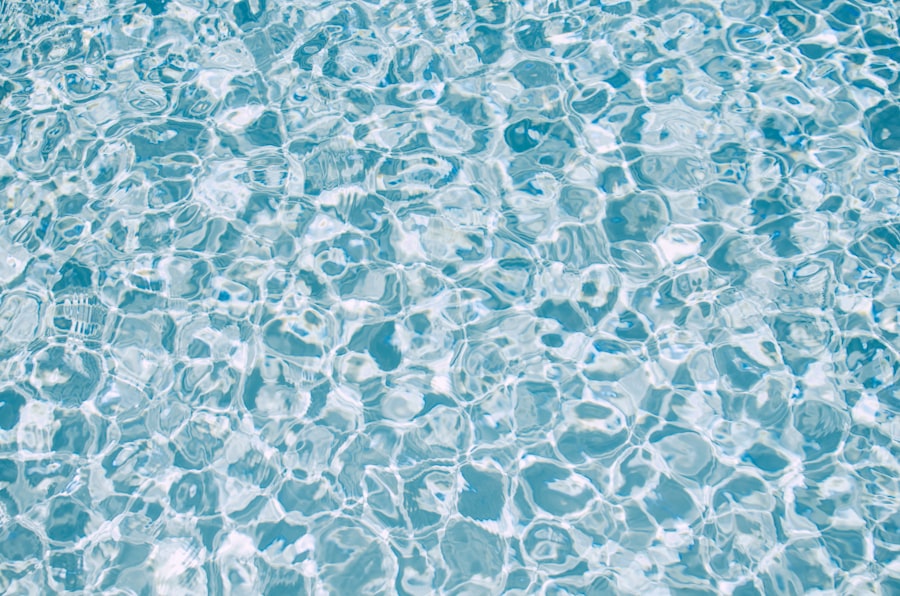
Harnessing solar power is an eco-friendly and cost-effective way to keep chicken water from freezing. One way to use solar power to prevent freezing is by using a solar-powered water heater. These heaters use solar energy to heat the water, keeping it at a constant temperature and preventing freezing.
Another option is to use a solar-powered heating element that can be placed directly in the water container. This heating element uses solar energy to warm the water and prevent it from freezing. Additionally, using a solar-powered circulation pump can help prevent freezing by keeping the water in constant motion.
This prevents it from becoming stagnant and freezing over. Another way to harness solar power is by using a solar-powered insulation blanket. This blanket uses solar energy to generate heat and keep the water container warm, preventing freezing even in cold weather.
Utilizing Thermal Mass: How to Use Materials to Retain Heat and Prevent Freezing
Utilizing thermal mass is an effective way to retain heat and prevent chicken water from freezing. One way to do this is by using large, heavy containers for the water. These containers have a higher thermal mass, which means they can retain heat more effectively than smaller, lighter containers.
Additionally, using dark-colored containers can help absorb more heat from the sun, further preventing freezing. Another way to utilize thermal mass is by placing rocks or bricks in the water container. These materials have a high thermal mass and can help retain heat, preventing freezing.
Additionally, using a heat-absorbing material such as black rubber or plastic can help retain heat and prevent freezing. By utilizing these materials, you can effectively retain heat and prevent chicken water from freezing even in cold weather.
Adding Heat Sources: Creative Ways to Keep Chicken Water Warm Without Electricity
There are several creative ways to add heat sources to keep chicken water warm without electricity. One option is to use a passive solar heating system. This system uses sunlight to heat a thermal mass, such as rocks or bricks, which then radiates heat to keep the water warm.
Another option is to use a compost heating system. This involves placing a compost pile near the water container, which generates heat as it decomposes and helps keep the water warm. Additionally, using a geothermal heating system can help keep chicken water warm without electricity.
This system utilizes the natural heat from the earth to warm the water, preventing it from freezing even in cold weather. Another creative way to add heat sources is by using a wood stove or fireplace to heat rocks or bricks, which can then be placed in the water container to keep it warm.
Implementing Passive Heating: Strategies for Using Natural Processes to Prevent Freezing
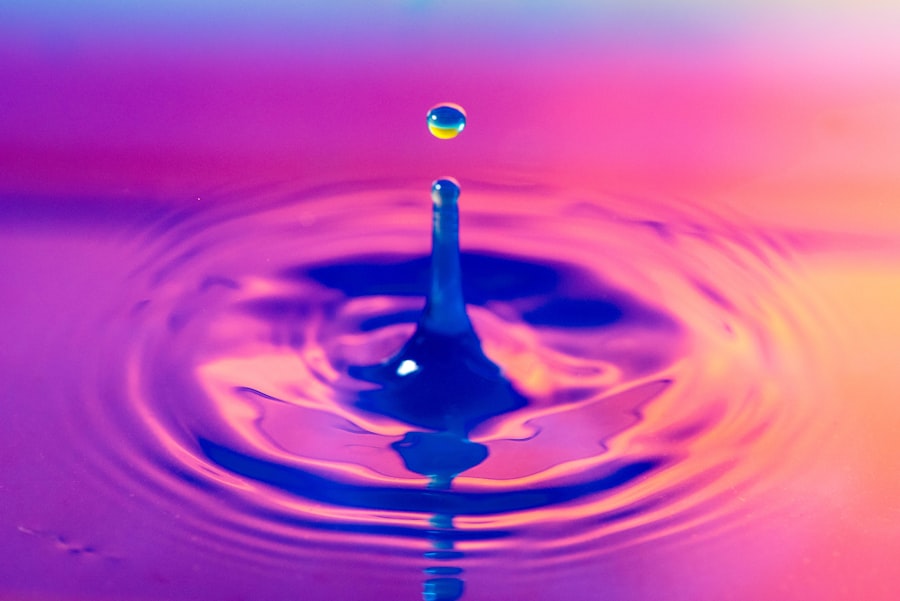
Passive Solar Design
One effective strategy is to use a passive solar design for the chicken coop and water area. This involves positioning the coop and water container in a way that maximizes exposure to sunlight, allowing natural solar heating to keep the water warm.
Passive Solar Collectors and Thermal Curtains
Additionally, using passive solar collectors such as black barrels filled with water can help absorb heat during the day and release it at night to keep the water from freezing. Another passive heating strategy is to use thermal curtains or blankets around the coop and water area. These curtains or blankets can help trap heat and prevent cold air from reaching the water container, keeping it warm even in cold weather.
Passive Ventilation Systems
Using passive ventilation systems such as vents or windows can help regulate temperature and prevent freezing by allowing warm air to circulate around the water container.
Monitoring and Maintenance: Tips for Keeping Chicken Water from Freezing in Cold Weather
Monitoring and maintenance are essential for keeping chicken water from freezing in cold weather. It’s important to regularly check the water container for any signs of freezing and take proactive measures to prevent it from happening. This may include adding more insulation, adjusting passive heating systems, or adding heat sources as needed.
Additionally, it’s important to regularly clean the water container to ensure that it remains free from debris and contaminants that could contribute to freezing. Keeping the water clean and free-flowing can help prevent freezing and ensure that your chickens have access to fresh, unfrozen water at all times. Furthermore, it’s important to regularly check for any leaks or damage to the water container that could compromise its ability to retain heat and prevent freezing.
By staying vigilant and performing regular maintenance, you can effectively keep chicken water from freezing in cold weather and ensure that your chickens stay healthy and hydrated throughout the winter months.
If you’re looking for ways to keep your chickens water from freezing without electricity, you may also be interested in learning about the best kind of coop for chickens. Check out this article to find out more about creating the ideal environment for your feathered friends.
FAQs
How can I keep my chickens’ water from freezing without electricity?
There are several methods to keep chickens’ water from freezing without electricity, including using insulated waterers, adding a floating ball to the water, using heated waterers, and using solar-powered water heaters.
What is an insulated waterer and how does it work?
An insulated waterer is a water container that is designed to retain heat and prevent freezing. It typically has double-walled construction with insulation in between the walls to keep the water from freezing in cold temperatures.
How does adding a floating ball to the water prevent freezing?
Adding a floating ball to the water helps prevent freezing by creating movement in the water, which makes it more difficult for ice to form. The ball also helps to break up any ice that does form, keeping the water accessible to the chickens.
What are heated waterers and how do they work?
Heated waterers are designed to keep the water from freezing by using a built-in heating element. These waterers are plugged into an electrical outlet and maintain a constant temperature to prevent freezing.
How do solar-powered water heaters work for keeping chickens’ water from freezing?
Solar-powered water heaters use the sun’s energy to heat the water and prevent freezing. They typically have a solar panel that collects energy from the sun and transfers it to a heating element in the water container.
Are there any other methods for keeping chickens’ water from freezing without electricity?
Other methods for keeping chickens’ water from freezing without electricity include using heated rocks or bricks to warm the water, insulating the water container with foam or blankets, and using a passive solar design to capture and retain heat.
Meet Walter, the feathered-friend fanatic of Florida! Nestled in the sunshine state, Walter struts through life with his feathered companions, clucking his way to happiness. With a coop that’s fancier than a five-star hotel, he’s the Don Juan of the chicken world. When he’s not teaching his hens to do the cha-cha, you’ll find him in a heated debate with his prized rooster, Sir Clucks-a-Lot. Walter’s poultry passion is no yolk; he’s the sunny-side-up guy you never knew you needed in your flock of friends!

